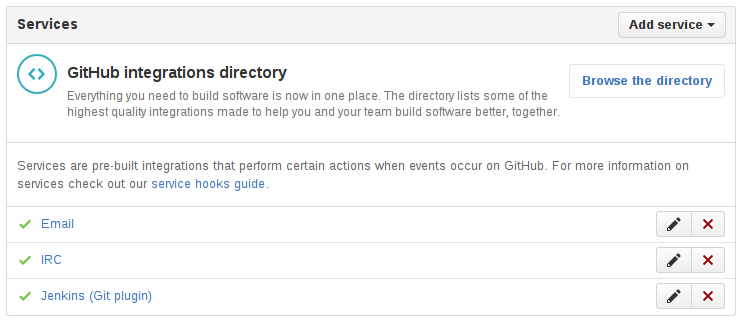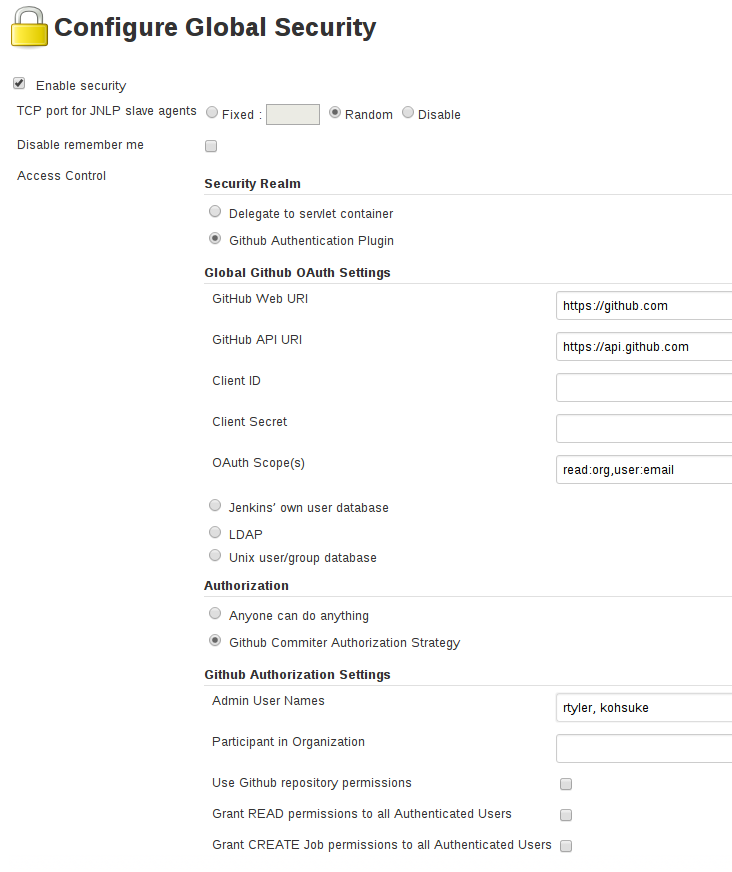
Jenkins, itself located on GitHub, has a number of plugins for integrating into GitHub. The primary avenues for integrating your Jenkins instance with GitHub are:
-
"build integration" - using GitHub to trigger builds
-
"authentication integration" - using GitHub as the source of authentication information to secure a Jenkins instance.
Build integration
With the help of the Git plugin Jenkins can easily pull source code from any Git repository that the Jenkins build node can access.
The GitHub plugin extends upon that integration further by providing improved bi-directional integration with GitHub. Allowing you to set up a Service Hook which will hit your Jenkins instance every time a change is pushed to GitHub.

Going the other direction, the GitHub plugin can also feed information back into GitHub via the commit status API, more details here.
Authenticating with GitHub
Using the GitHub Authentication plugin it is possible to use GitHub’s own authentication scheme for implementing authentication in your Jenkins instance.
The setup guide will help walk you through configuring the GitHub OAuth side, and your Jenkins instance, to provide easy authentication/authorization for users.

Jenkins ♥ GitHub Articles
-
Better Integration Between Jenkins and GitHub (with the GitHub Jenkins Plugin)
www.cloudbees.com -
Setting up Jenkins for Github and Xcode, with Nightlies
orangejuiceliberationfront.com
GitHub plugins for Jenkins
-
GitHub plugin
integrates Jenkins jobs with GitHub repositories for triggering builds and reporting commit status
-
GitHub Authentication plugin
use GitHub as the authentication provider for your Jenkins instance
-
Git plugin
use Git repositories as the source of code for a Jenkins job
-
GitHub SQS plugin
trigger builds via the GitHub SQS (AWS) service hook
-
GitHub Issues plugin
create a GitHub issue whenever your build fails, and automatically close it once the build starts passing again